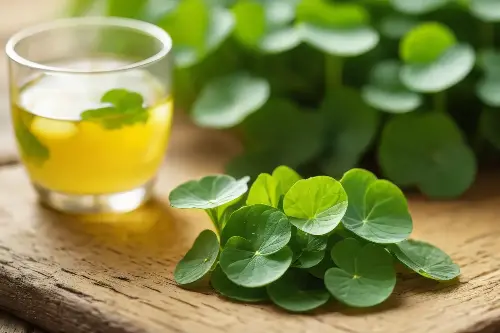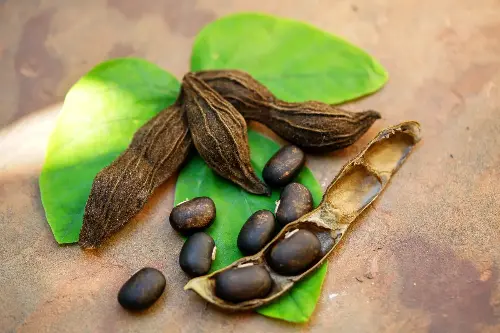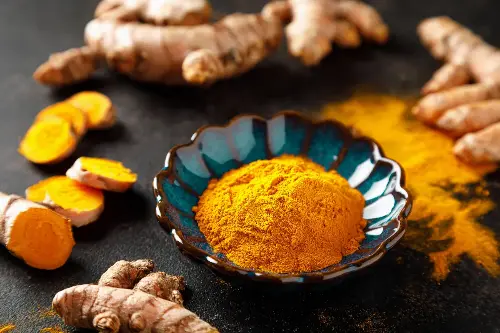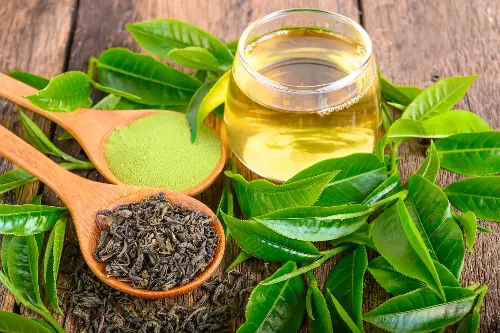Parkinson’s disease is a progressive neurological condition that primarily affects movement, creating tremors, stiffness and slowing motion. While conventional medicine is the mainstay treatment for patients with Parkinson’s disease, a growing body of research suggests that certain natural herbs may provide complementary relief for some symptoms of the condition. In this article, we will explore five powerful herbs that have been found to have potential benefits for individuals living with Parkinson’s disease.
Ginkgo Biloba – A Beacon of Neuroprotective Potential

Ginkgo Biloba, an ancient tree native to China, has been used in medicine for thousands of years. Modern research indicates that Ginkgo may have neuroprotective properties, potentially safeguarding the nerve cells damaged by Parkinson’s disease. One of the most promising aspects of Ginkgo Biloba is its high antioxidant content which may battle the oxidative stress associated with the development and progression of Parkinson’s. Furthermore, some studies suggest that this herb may improve cognitive function and memory, areas often influenced by the disease.
Bacopa Monnieri – The Cognitive Enhancer

Bacopa Monnieri, commonly known as Brahmi, is a staple plant in traditional Ayurvedic medicine. It is reputed for enhancing brain function, which could be beneficial for Parkinson’s disease sufferers experiencing cognitive difficulties. Some research points to Bacopa's capacity for protecting dopamine-producing neurons, suggesting its potential in reducing symptoms associated with dopamine deficiency in Parkinson's patients. While more studies are necessary to establish the efficacy and safety of Bacopa Monnieri for Parkinson’s disease, its use as a cognitive enhancer can be of interest for managing the non-motor symptoms of the disease.
Mucuna Pruriens – Nature’s Source of L-Dopa

Mucuna Pruriens, or velvet bean, is particularly interesting for Parkinson’s research due to its natural content of levodopa (L-Dopa), the precursor to dopamine. Pharmaceutical L-Dopa is a standard treatment for Parkinson’s, making Mucuna Pruriens a potential natural alternative. The herb’s naturally occurring levodopa might cross the blood-brain barrier, potentially increasing dopamine levels and alleviating the symptoms of Parkinson’s. While its efficacy is still being tested, early results show promise and highlight the need for further investigation.
Curcumin – The Anti-Inflammatory Powerhouse

Curcumin, the active compound in turmeric, is celebrated for its powerful anti-inflammatory and antioxidant properties. Chronic inflammation plays a significant role in the development of Parkinson’s disease, and curcumin's ability to reduce inflammation may be beneficial. Animal models have shown that curcumin could prevent dopamine-producing neuronal degeneration, suggesting its potential as a neuroprotective agent for Parkinson’s sufferers. As with many natural treatments, more research is needed to determine optimal dosages and applications for patients.
Green Tea Extract – The Antioxidant Dynamo

Green Tea Extract, rich in antioxidants like epigallocatechin gallate (EGCG), offers multiple health benefits, including potential neuroprotective effects. There's evidence to suggest that the polyphenols in green tea may inhibit the formation of harmful protein aggregates that are believed to contribute to Parkinson's pathology. This could be significant for slowing the progression or helping to manage the condition better. In addition to its potential neuroprotective properties, green tea is also thought to facilitate cognitive function and overall brain health.
While these herbs show promise, they are not an alternative to traditional treatments. They may offer supplementary support and should be considered as a component of a broader approach to managing Parkinson’s disease. It is essential for individuals interested in exploring these natural remedies to consult with healthcare professionals before integrating them into their treatment plans. With the guidance of a doctor, particularly one who specialises in herbal medicine or naturopathy, these natural herbs might provide a complementary strategy in the fight against the symptoms of Parkinson’s disease.
As research continues to evolve, it is our hope that these natural remedies may one day offer a brighter horizon for those living with this challenging condition. Engaging with the power of nature, while rooted in science, could lead to innovative ways to enhance quality of life and bring relief to Parkinson’s disease sufferers around the globe.
